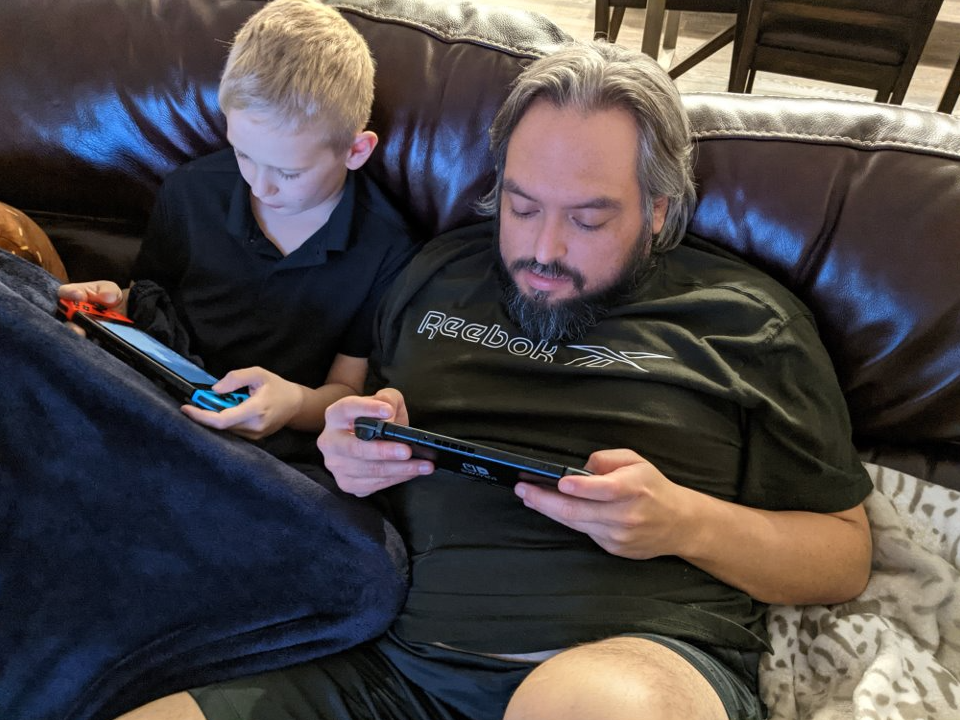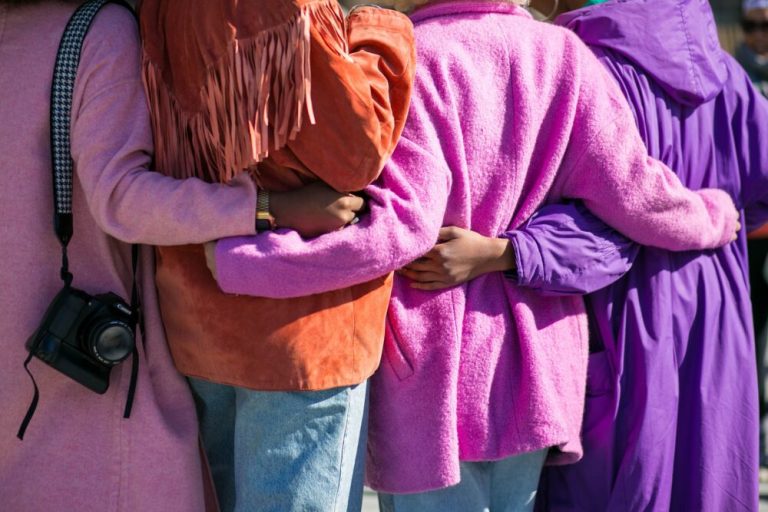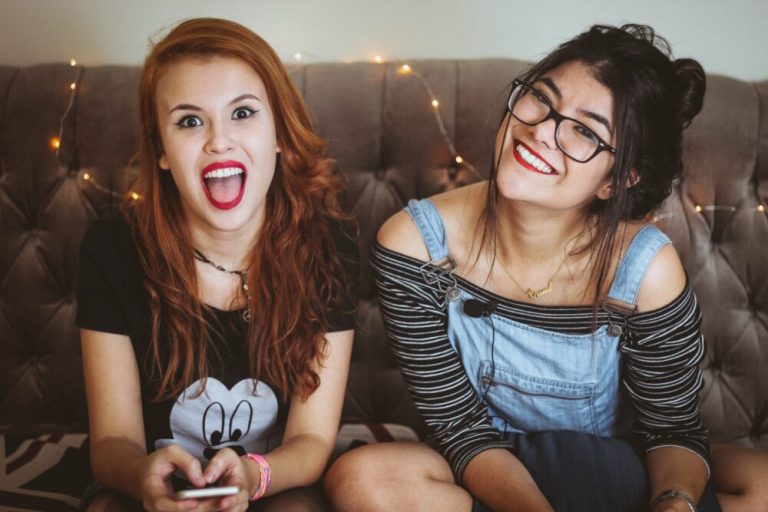
In 2020, I filed for divorce. I did not come to this decision lightly. There was over four years of marriage therapy, countless conversations and tears. In 2017 I had filed before, feeling like nothing I did or said mattered or made any change. And after that filing change did happen, temporarily. But by early 2019 the changes were gone; he refused more therapy, we slept in separate rooms, and I realized I needed to move on, not temporarily but permanently.
The 2017 decision to divorce was made out of a feeling of hopelessness that the future would never change, but the 2020 decision was made with indifference and optimism for the future. While I had optimism for what was next in my life, there were still fears.
A big fear of mine was for my son.
There were lots of changes that would happen to him. I worked to keep his routines, keep living in my home and keep up relationships with his friends. But there was another big change that would come, my own relationship with a friend that would turn into more.
Alan was a friend and fellow geek like myself. He volunteered at my former event company, providing advice and security for the two-day event I ran. Alan and I would hang out at geeky events and talk constantly. We had so much in common, and he was a person secure and stable in himself. Alan was aware of his feelings and the effect those feelings had on others. It was a vastly different experience from living with someone who blamed all mental health issues and problems in their life on external factors. Much of that blame fell on me, and while I recognize that my reactions to feelings and actions were not always helpful; I was not and am still not responsible for his feelings. Alan’s emotional intelligence were a balm to someone who had been an emotional punching bag for years. And his self-assuredness, lust for life and optimism made that friendship grow into something more.
It was not just Alan’s relationship with me that was important, but with my child.
I was very upfront with him that if my son didn’t get along with him, we couldn’t take our relationship further. My son and I were a package deal. I was careful to take some time before I introduced him to my kid. The first time they met Alan came with a gift, a Pokémon card set. He knew my child was interested. Their relationship started through that game, and it has continued with games ever since.
Pokémon is just one of many games Alan and my son have bonded over.
Alan helped my kid get more Pokémon cards, taught him those card values. Then for months we would all go hunt Pokémon on the Pokémon Go app. After Pokémon, came Zelda. My son has been a huge fan of Legend of Zelda since Legend of Zelda: Breath of the Wild, came out in 2017. Even though he’s beat it a few times, it’s been a consistent, calming presence in his life. Through the divorce he played Zelda even more as a coping mechanism and something familiar that has been there for him for years. I bought The Legend of Zelda: Link’s Awakening for us to all play together. It’s a Switch game, modeled after the class 1993 Super Nintendo title. My son laughed and talked and opened up to Alan through the game. We were all melancholy when it was nearing an end; and to delay the inevitable we made sure we got every treasure, item and explored all of the map.
After Zelda came Dungeons & Dragons (DnD). Alan has been a DM, or dungeon master with the same group of friends for 22 years. Some of his closest friends have come about through the game. Alan introduced my son to the game, showing off his large collection of mini figures and books and teaching the basics. My child developed his character, Finnan the rogue, and his favorite campaigns were ones that resulted in mountains of treasure. That love of DnD continues in our home and Alan and my son are just now starting a new hobby of painting the minifigs.
Along with DnD and Pokémon, video games have brought Alan and my son together. We own multiple consoles in our house and a common past time (after homework and dinner are done) is to play a game together. A few of our favorite games as a family have been Dragon Quest XI, the Atelier series and old-school Super Nintendo games. Some of those games are featured on Digital Respons-Ability’s digital parenting site.
Video games are great for families because they provide opportunities to talk about complex subjects, and learn new things.
For example, we played Persona 5 Royale, a Japanese role-playing game that is heavy on character development. The game stars a group of high school students who came together through The Metaverse, an alternate reality based on mental cognition. Through their adventures in the Metaverse, but also their day-to-day tasks of going to school, finishing homework etc. this diverse group of high school students bond. Through Persona 5 Royale conversations on bullying, friendship, relationships and more came up naturally.
When having those conversations during gaming, I would start with open-ended questions. I wanted to give space for my son to formulate an answer and express his choices without judgment. Here’s some conversation prompts I used and there’s some more conversation prompts around technology that you can download on our website.
- What do you think happens next?
- Why do you think he/she feels that way?
- (Referring to a character on the screen) What do you think they’re feeling?
- What would YOU do in this situation?
- If someone [insert action verb: bullied, spoke to, treated] you that way, how would you feel?
- What would you do if a friend was treated that way?
- How are you feeling? Is the game scary? Exciting? We can always play something else.
I find that during video games, my sometimes-shy child will open up about topics.
I know that if I ask him some directly face to face he won’t always respond. But if I wait until we’re driving somewhere, eating together or playing a game—those thoughts and feelings will come out. Games are a safe, comfortable place for being vulnerable. And with all the changes and complicated feelings that my son has experienced through the divorce process, games have been almost like therapy.
I have my own stories and anecdotes to share about gaming. It was a constant in a year of change. It provided a safe place for conversation and bonding. Research also backs up benefits of gaming. There’s more research out there which shows gaming can improve mental health. Gaming has been used to treat those with PTSD and it can provide social connection. During Covid-19 lockdowns, gaming was the way people could reach out to their friends and family. It happened in our family too, my son would play with friends on Minecraft when he couldn’t see them in person.
Alan and my son continue to get closer and closer. A few months ago my kid started to say “I love you” to Alan. My kid regularly snuggles Alan and will reach for his hand when we are in crowded spaces. It’s been beautiful to watch, and while I give gaming some of the credit,
Gaming was just the opportunity, the vehicle for that relationship.
Ultimately games provide the means, but it was the kindness, empathy, laughter, talk and all the other interactions that happened during the game that bonded our new little family together. Games also healed me through the divorce. They were a space that I could decompress through all the stress swirling around me. I could sit on the couch with Alan and my kid, lower my blood pressure, relax my muscles, and then be refreshed and ready for whatever the next day would throw at me.
Gaming has received lots of criticism over the years. I know I wasn’t as supportive of gaming years ago–seeing it as a time suck. There’s also fears of so-called “gaming addiction” and a host of software and even government regulation to address that. Games have also been the scapegoat of school violence and failed relationships. I’m not saying that what we do with our hours doesn’t affect us. But what I am saying is that hours of gaming aren’t necessarily a net negative, and can even be a net positive in our lives.
Games are just the platform, the means for our relationships, they aren’t a substitute.
Anyone who’s participated in a Zoom social this past year can attest that it just isn’t the same. Along with DnD, Pokémon, Zelda and more, there were the regular routines of relationship building. Alan would cook for my son, help him with homework, remind him about tasks, ask him about his day. Gaming facilitated the relationship-building between those two, but it couldn’t have done it without the real-world, daily, (sometimes boring) work of living.
Alan and I are now married. I know that life continually brings change. 2020 brought change to so many people, not just me. Alan and my kid will bicker, there will be disagreements and fights in our family, but I am optimistic that gaming can continue to be a place of peace, talking, and fun for us.






